Track By Track: Reb Fountain Takes Us Through Her Brilliant New Album
Auckland-based singer/songwriter Reb Fountain releases her new, self-titled album today and its a beauty.
For those who have followed Reb’s career over the years, you may be surprised at the musical direction she has taken along with co-producer/guitarist Dave Khan. Reb widens her musical palette, moving away from the acoustic, Americana style songs she’s become known for to a sound that is at times darker and more personal. Having performed songs by Nick Cave and Patti Smith has clearly influenced her own songwriting.
The 13th Floor’s Marty Duda spoke to Reb Fountain about the 10 songs that comprise the album. Reb was happy to share her thoughts and feelings as you can hear or read here:
Click here to listen to the interview with Reb Fountain:
Or, read a transcription of the interview here:
M: So the new album, which is self titled, it’s a different musical turn for you would you agree?
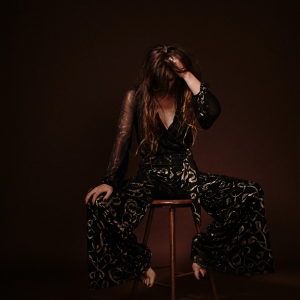 R: I mean I guess I’d hope that it would be. In so many ways you don’t want to repeat what you’ve done before. In saying that, I don’t write genre specific, I guess I’m more fluid in allowing myself to create whatever I’m creating and this record came out just like any other one. I don’t know if it’s so much of a departure as just kind of the next step and there’s a lot of elements on there that have been existing for me, I’ve always kind of done a lot of different things. I know my last records have been more in that folk, country genre or at least that’s what other people were calling them. But for me, that’s just kind of how they turned out. I think I guess with this album I had the opportunity to work with Dave Khan and with Simon Gooding and create a lot of space when maybe I filled that space before in the past and so it kind of allowed the songs to emerge in a new light.
R: I mean I guess I’d hope that it would be. In so many ways you don’t want to repeat what you’ve done before. In saying that, I don’t write genre specific, I guess I’m more fluid in allowing myself to create whatever I’m creating and this record came out just like any other one. I don’t know if it’s so much of a departure as just kind of the next step and there’s a lot of elements on there that have been existing for me, I’ve always kind of done a lot of different things. I know my last records have been more in that folk, country genre or at least that’s what other people were calling them. But for me, that’s just kind of how they turned out. I think I guess with this album I had the opportunity to work with Dave Khan and with Simon Gooding and create a lot of space when maybe I filled that space before in the past and so it kind of allowed the songs to emerge in a new light.
M: Because to me, from my observation because I’ve been following your career for a while now, I got the feeling that you were kind of stretching out or changing a bit like around the time that you did that Nick Cave night at the Whammy Bar and it felt like you were trying to expand what you do rather than just kind of the typical folky, singer songwriter kind of thing.
R: Well, to be honest with you, doing Little Arrows and Hopeful And Hopeless they were really important records for me to release. They were older products and they were also kind of so filled with the emotional legacy of Sam Prebble and so it was quite hard to get through them, and I was lucky enough to, sorry I had the Hopeful and Hopeless tour and the Little Arrows tour and then we booked this Nick Cave tour for his sixtieth birthday and it just felt like I was liberated, that I’d completed these projects which I desperately had wanted to do and they had been sitting on the back burner for some time and so I felt like complete that I had done that and then to have this incredible landscape to dive into of Nick Cave’s music and just play and explore and be wild. That was so important for me and I think really did just open up my world to ‘ok what do you want to do now? How do you want to write? What kind of artist do you want to be? What do you want to express for the future?’ And yeah it set me on a new direction, absolutely right.
M: My impression is this is kind of a collaboration with Dave Khan so maybe you can talk to me about if that is indeed true, why you’ve chosen to work with him and how that collaboration works out?
R: All the songs are written by me. What happened was I woke up one morning and I’d been planning up until this point and I thought I need to book another tour, I haven’t done a show and a proper tour in a year, I need to do something. And I’d been kind of writing and really just kind of a covering from that year that was 2018 and I woke up and I was like, I just need to make a record. It was like I’d woken from a dream and I just went right what am I doing? This is the time. And I called him and he was on tour with Marlon (Williams) in Europe and I was like Dave, this is what I want to do, I want to make a record and I really want you to produce it. And so basically over the next couple of days I booked everything, I called up Roundhead and penciled in the dates and make this plan and I didn’t actually have all the songs yet but I made it for, I think it was two and a half or three months out and then just kind of set to work on working out what that would look like. And Dave came back and I guess we got together a couple weeks before we went into the studio and I had been up in to that point writing and working out what I would do, piecing songs together. We got together a couple of times in the weeks before and just played 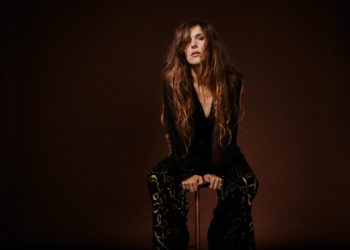 around, mucked around really and explored different things, what would work, what wouldn’t work, but still didn’t really know what we were doing. I just knew that I wanted Dave to help hold it. I didn’t want to hold it all myself, I wanted him to steer it. We’d worked together so much musically and I really trust his vision and the way that he would approach things and felt really strongly that I needed him as a guide for this project. And sometimes I’d have to fight for it with him because it also involved him stepping up and saying yes I will do that. That was new in that kind of formal sense for him and I felt like it was an opportunity to let him shine as well because he’s a genius and he has been doing this sort of thing on the back burner for so many artists that he’s been involved with, with Marlon, with Cami and from the sidelines doing what he does which is his great ideas, he’s an ideas man. But he’s also very good at action at bringing those to life and being the musical director essentially for a lot of projects. So that was kind of a reason why I wanted to bring him on board and true to form it worked really well and Simon Gooding helping co-producing and engineering, Simon I worked with, he was in my band in the early days.
around, mucked around really and explored different things, what would work, what wouldn’t work, but still didn’t really know what we were doing. I just knew that I wanted Dave to help hold it. I didn’t want to hold it all myself, I wanted him to steer it. We’d worked together so much musically and I really trust his vision and the way that he would approach things and felt really strongly that I needed him as a guide for this project. And sometimes I’d have to fight for it with him because it also involved him stepping up and saying yes I will do that. That was new in that kind of formal sense for him and I felt like it was an opportunity to let him shine as well because he’s a genius and he has been doing this sort of thing on the back burner for so many artists that he’s been involved with, with Marlon, with Cami and from the sidelines doing what he does which is his great ideas, he’s an ideas man. But he’s also very good at action at bringing those to life and being the musical director essentially for a lot of projects. So that was kind of a reason why I wanted to bring him on board and true to form it worked really well and Simon Gooding helping co-producing and engineering, Simon I worked with, he was in my band in the early days.
M: Oh, I didn’t know that.
R: Yeah that’s how I kind of got to know him and then he went on to engineer my albums at the York Street and master and was helping with Sam Prebble and that’s kind of how we met cause he joined the band and then was working at York Street and all of a sudden we fell into this relationship. So as the top of engineering New Zealand, I’m very lucky to have that relationship with him and I really wanted him to be involved in this because we’d also had this long drawn out experience with Little Arrows and he mastered Hopeful and Hopeless and I just wanted to bring us all something fresh that we could just kind of catapult off of. So I was super lucky to have those relationships and just wanted to foster them and for me it’s been amazing because the essence of the songs is there and they’ve been shaped and held in a way which really supports that but also we’ve created something new.
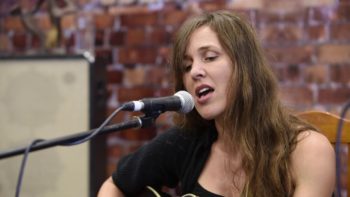
M: Getting to the album specifically, like the opening track Hawks and Doves, it kind of does a slow fade up and it feels somewhat dark and spooky and sparse. Did you talk to say Dave and Simon about that kind of sound? Is that what you were aiming for or is it just how it happened?
R: Well in a way I think it’s sort of emblematic of the song itself. Like that song I wrote in one sitting and a lot of the songs I did but just at different times. And maybe it had that air about it. I’d played that song a few times live up until then and I’d always wanted that pulsing beat that crossed over the tempo so you just had that in the background and then I guess as we played it, it opened up at the beginning of it there;s this space where all of a sudden the song falls into. And I knew once it was recorded that I wanted it to be the first track on the record because it did that. It sort of guides you in and for me anyway it feels like there’s an element of this is the turning point. This is the point where it changes and opens you up to a new world and then the rest of the album unfolds after that.
M: And speaking of the rest of the album, the next track is called Samson, and in it there’s a couple of spoken word poetry recitals of yours that remind me a lot of Patti Smith so I’m wondering if you were kind of channeling Patti when you were recording that or what was going on there?
R: I think that you are always taking from influences and certainly I’d done a Patti Smith concert down south. I’ve covered some of her songs but in that particular moment that song was written during the studio recording and I came home one night, sat down at the piano and I felt this urgency to express things that I felt like hadn’t been expressed and that’s what came out and there wasn’t any intention to write a spoken word piece and it be emblematic of something I’d heard Patti do or other artists. That’s just what came out and what felt right in order to express what I needed to and then also the combination of that with this quite poppy chorus coming together, they felt like they worked to reinforce one another and support one another in a really awesome way and I certainly, two days before I wouldn’t have intended to write that song or that day have known that I would’ve brought those features together and they created that thing they just sort of emerged and then I took it into the studio the next day and was like we have to do this song and was so scared and nervous about it cause It’s really scary sharing a song for the first time. And we just worked on it and we made it and those guys did such a great job of being able to draw out what I wanted to say and kind of put it on this platform. Yeah, it’s awesome.
M: I’m curious, when you’re singing and when you’re performing or recording even these songs, do you feel that you take on a persona in some of these songs or are you singing as yourself? Cause the next track It’s A Bird, It’s A Plane made me wonder about that.
R: It’s different when you write a song and then when you record it or when you perform it and I feel like to perform you’re always slightly inhabiting a song because let’s say if I’m at Hopeful and Hopeless I’d play that hundreds of times, I need to still find meaning in that or joy in that and it will change over time. Think of someone like Bruce Springsteen and how many times he’s sung those songs but he’s still like singing them for the first time when he sings it. It’s so amazing and so there is and different corners and avenues and spaces in the songs require or hold a different intention and so you kind of bump up alongside them and into them and you’re in that space and you go with the feeling that’s in them or you bring a new feeling to it and so yeah totally I do that. Whether it’s through tone, a voice or through just images that I’m giving myself, maybe it’s like being in a virtual reality and you’re creating your landscape as you go to create different feelings in your body and express different things. It’s little but like that maybe.
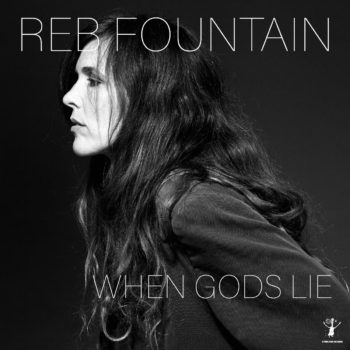 M: It sounds good. Now the next song on the album When Gods Lie, has a male voice coming in. Who is that exactly?
M: It sounds good. Now the next song on the album When Gods Lie, has a male voice coming in. Who is that exactly?
R: That’s my friend Finn Andrews from The Veils and I met Finn a few years back. I’d always been a massive Veil fan and in fact my friends, when we went on tour for my album Holster, we just played Nux Vomica endlessly and with massive sing-a-longs in the van and yeah I’d always been pretty starstruck in admiration. And then we ended up after this show, after David Bowie died there was a tour that was a David Bowie tribute and Finn came over from the UK to sing some songs in it and he just made it for me because he’s got that darkness and connectivity about him and I was kind of just doing BVs and I think I did one song with Skyscraper Stan. But yeah, Finn and I just really connected and we hung out and drank whiskey and I kind of shared the story of how I knew his music and he was really kind and compassionate and then after that we went on to do music together and he got me to do some bvs for him we did a tour and then we did some recording together and then I went on to do his latest record and his tour in Europe and such. So we’d have this beautiful relationship that had grown, a little bit like with Dave and with Simon, and just tapping into that and I wanted this to be a duet and yeah he just came to mind really straight away and I was just lucky that he said yes. I was so scared. And he brings a real gravitas with his music, with his voice and his energy and I love it.
M: On that track, there’s something near the end of the song that sounds almost like a toy keyboard sound, do you know what I mean? Do you know what that is?
R: Yeah, Dave has this little organelle which is kind of like a little synth player that you can get a whole bunch of sounds and stuff on it.
M: I think I know what you mean, I think he brought it over to my place when he did a recording once and it was pretty interesting.
R: I’m sure he did.
M: Now on Faster, you kind of go back to the country thing. There’s a twangy guitar in there, and there’s strings in it as well it sounds like so I was curious as to who was doing the string arrangements and just wondering if you’re throwing a little country in just to make your old fans feel comfortable?
R: No I wasn’t throwing it in. Like I wrote that song, that song was written really close to recording. So it wasn’t like an old track. It did feel like the ones that maybe previous audiences would find the most familiar and that’s why I chose to release it initially as kind of like a year ago.
M: Kind of ease people into what you’re doing.
R: Cause it felt like a really cool transition and I also wanted to do something cause I wasn’t sure exactly when the record was gonna come out. And it just felt like a nice transition. In terms of the arrangements, Dave did all the string arrangements on the record and that song, we tried a bunch of different things with that song, we had drums in there that we pulled out, I got to a point when I was like I don’t even know what I can do with it and then just pulled everything out and re-did it with just the strings with the guitar essentially and tiny little bits of piano here and there. So yeah, I love that song, it’s one of my favourite songs lyrically and it’s probably the most feminist song that I’ve ever written and it means a lot to me that one.
M: I love the piano in it. It’s very kind of Floyd Cramer-y country kind of piano. I assume that’s you playing it?
R: Well there you go, there’s Dave for you.
M: Oh is it Dave? Alright, and Don’t You Know Who I Am, seems to be the most intense song on the album,at least it came across to me. I’m wondering if you can tell me a little bit about where that song came from?
R: I got inspired by the story of Benjamin Chee Chee. He’s a first nation artist from Canada and I had got permission to use his artwork for Little Arrows and I got a tattoo of that artwork as well and I was really fascinated with him and got inspired by his story. So that’s where the song kind of started and then of course to me when I write it’s never about one thing, it’s always like complex but hopefully it comes across as one story which is really about who we think we are, who we pretend to be, who we are afraid of being and rising up and coming beyond that. And that song, when I play live, is usually way more intense than the recording. That song was recorded in one take and it was all live and we tried it back then as big as it was but we weren’t really a band yet, we hadn’t gotten that feeling and this felt just smooth it felt really wide and I’d also been playing it on the guitar and it wasn’t til we were like oh, is this song gonna work that I went hang on and I went and sat at the piano and I said let’s do it like this and so we all just sat in the room and played it and that was the one take. It’s definitely one of my favs and now that I’ve got this amazing band with Dave and Karen and Emile we just rock the crap out of it.
M: There you go. Cause you have Ben Woolley and Logan playing with you as well?
R: On the record, yeah we did, but of course we sort of come together from different directions and so what you create on the album and then how you can create that for live performance afterwards is quite different. So we’ve been really lucky to have this time, the last two months to be able to build that up so that when we do come out and play live, we’ll have a really strong sense of the record itself. It’s been awesome.
M: How are you feeling about having the record out during this whole isolation, lockdown thing? Is it ok with you? Is it working for you?
R: It’s so weird Marty, it’s so surreal. When would you ever choose to release an album when there’s a global pandemic, it’s just mental. But the only thing that I can do and have to offer like I’m not an essential worker. This is the gift that I can share, that I hope in some way helps people feel connected, helps them feel good about being alive and to do it right now is kind of like the most important thing that I can do even though it’s also really, really strange.
M: That’s for sure. Well we’ve been going through pretty much the album track by track so we might as well just touch on the next four songs so that we complete the thing. So the next one is called Strangers, and I was wondering, especially on that one, if you felt like you were playing a role when you were singing that in you ‘I like strangers’ kind of thing, I don’t know. And there is a theremin sounding thing in there too which is kinda neat.
R: Yeah, that one I definitely feel like I jump into a particular environment or landscape and it’s always felt that way. It doesn’t feel like it’s not me at all, they always feel like they’re me, it’s just what part of me or space in me that I’m inhabiting. And that way, each song has its own identity and so Strangers has that its own one and a place that I will sing it from. It’s super cool, I Love that song. I love that it’s also a little bit dark too like…..
M: Yeah, it’s spooky.
R: Yeah I do like the spooky element, the witchy-poo element of it.
M: And then Quiet Like The Rain, which is pretty much, I just had a note here, it sounds almost like a torch song with you on the piano and the strings coming in at the end.
R: That song is one of my band’s favourite songs to play, it’s really interesting to me.
M: Really?
R: Yeah and I think there’s suspense of solidarity that comes from that song, particularly the outro part where we’re all singing together and yeah there’s many things that I love about Quiet Like The Rain. That’s why I wrote it and it’s complex, too complex for the next four minutes but yeah.
M: And then The Last Word, it starts with a kind of big lush strings in the beginning and then it goes back to them at the outro again.
R: I’d written the melody for that, obviously not on strings but I think it was electric guitar actually and I always wanted it to be like that, that there was this weird thing in a different key. Initially we went back to that in the middle of the song but then we ended up just kind of having it a bookend and yeah this song is really fun to play live and in our live version, I give Dave ample opportunity to play a lot of guitar solos at length and noise so you’ll hear that.
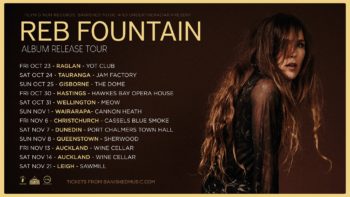 M: Excellent. And we’ve got one more, Lighthouse. Which is again piano and voice mostly and some strings.
M: Excellent. And we’ve got one more, Lighthouse. Which is again piano and voice mostly and some strings.
R: Well this one was also with parts recorded just in one live take and I wrote this not long before recording, I wrote it when my son was going to Africa and I was thinking about his well-being and I was thinking about generally everyone’s well-being and what would we do when we go away and don’t have those things to look after us or those normal familiar spaces. Like potentially like what it’s like now at the moment in lockdown, all those familiar things to keep our mental health ok. And so I wanted to write a song for him, for myself and for everyone that was about remembering that it will get dark and you do have to reach out and that’s normal and ok.
M: So hopefully we’re gonna hear these songs live at some point.
R: You will and there should be some live dates, new live dates coming up cause we’ve rebooked for October, November.
